The University of Northern Colorado (UNC) online Master of Business Administration (MBA) program is dedicated to shaping well-rounded executives capable of directing diverse businesses to success. A key aspect of this commitment lies in recognizing the importance of advisory councils. These councils, or boards, serve as strategic assets for graduates, empowering them to lead with wisdom in many business environments.
Business professionals must understand the purposes and process for establishing advisory councils. Graduates of UNCO’s program emerge as seasoned executives equipped to make informed decisions, partly because they know the value of building and utilizing the right support structures around them.
What Is an Advisory Council?
An advisory council, or board, serves as a collective of seasoned experts tasked with offering expert advice to a company’s board of directors and senior management. Advisory boards do not hold formal authority or responsibility, and their members do not assume roles as company directors. Their primary function is as strategic counsel. Contrary to a common misconception that advisory boards are exclusively beneficial for startups, this dynamic approach to decision-making is used by many of the most prominent companies worldwide.
Toyota exemplifies the incorporation of an advisory board to enhance its decision-making processes. In 1996, the global corporation established an international advisory board comprising 10 distinguished members. Members included prominent figures like Dr. Manmohan Singh (former Prime Minister of India) and Dr. Paul Volcker (former U.S. Federal Reserve Board chairman) — individuals whose expertise transcended the automobile industry. This strategic move showcased Toyota’s understanding of the insights and perspectives that a diverse advisory board with wide-ranging expertise can offer.
An advisory board is composed of experienced and influential business leaders dedicated to assisting the CEO in achieving more substantial success, per Financial Management Magazine. This collaborative effort provides access to experiences and resources that would typically be challenging to acquire independently in terms of time, finances or network. A well-structured advisory board — a cost-effective hybrid of consultants, customer focus groups and industry experts — can convene in a single room and offer a unique opportunity for CEOs to glean valuable insights and implement the best ideas for their business.
What Roles Do Advisory Councils Play?
As CFO Selections notes, advisory councils provide a reservoir of expertise, delivering expert guidance and insights in areas where internal knowledge might be lacking. For instance, when navigating disruptive technologies, a company can tap into the advisory board’s wealth of knowledge and contacts in the sector, ensuring informed decision-making.
The guidance board members offer extends across various domains, including international business expansion and political climate. The board becomes a strategic ally in facilitating introductions that can contribute to the business’s development and growth and provide a comprehensive understanding of the potential implications of different business decisions.
An advisory council provides an unparalleled opportunity to gain insight, knowledge and advice without requiring extensive external training or the risk of making costly mistakes. For example, connecting the CFO with the optimal source for debt refinancing showcases how advisory boards can directly impact a company’s bottom line. Beyond financial considerations, advisory boards are pivotal in scouting the marketplace, anticipating future trends and identifying new strategic positions.
As Financial Management Magazine notes, major corporations like American Express and Molson Coors Brewing exemplify this practice by assembling committees of key customers and valued experts to foster profitable connections, potential partnerships and benchmarking efforts.
Advisory councils also largely impact education. According to YouScience, advisory councils help school boards in “identifying economic and workforce development trends related to the training and educational needs of the local community and advocating for strong, local career and technical education programs…” While business professionals should understand advisory councils and how they impact business, they must also understand how these councils impact other industries and institutions.
How Are Advisory Councils Established?
As CFO Selections notes, in order to assemble an effective advisory council, CEOs can tap into various resources within their professional network, including existing professional advisors such as attorneys and accountants. Defining the goals of the advisory board becomes crucial as CEOs envision the professionals they wish to invite as members. The ideal advisory dream team consists of individuals whose advice and ideas are trusted, possess a good understanding of the business or field and genuinely wish to contribute to the venture’s success.
The process involves reaching out to those already consulted for business support by expanding the search to industry experts, recently retired business owners, executives with extensive career experience, vendors, customers and even investors or shareholders. While advisory council membership is often seen as a reward in itself — providing networking, learning and socializing opportunities — some CEOs may choose to compensate members formally. Inviting an independent financial professional to join the council can enhance the discussion, act as a neutral sounding board and facilitate ongoing board communications.
The Monfort College of Business Has Its Own Advisory Council
Central to UNC’s commitment to students is the MBA Alumni Advisory Council (MBAAC). The MBAAC’s mission is clear: to strengthen engagement among MBA alums, students, faculty and staff and advance the program’s broader goals. Objectives include sharing industry best practices, promoting the program through testimonials and advocacy, identifying market trends for new concentrations, fostering a network of MBA alums (who can be instrumental for graduates in creating advisory councils) and contributing to developmental resources.
The MBAAC bridges academia and industry, ensuring the MBA program remains dynamic and relevant. This commitment aligns with the UNC Monfort College of Business’s dedication to providing a transformative business school experience, equipping graduates for enduring success in a fast-evolving business landscape. The MBA Alumni Advisory Council is a testament to UNC’s forward-looking approach to education and the value of advisory councils.
Learn more about the University of Northern Colorado’s online Master of Business Administration program.
